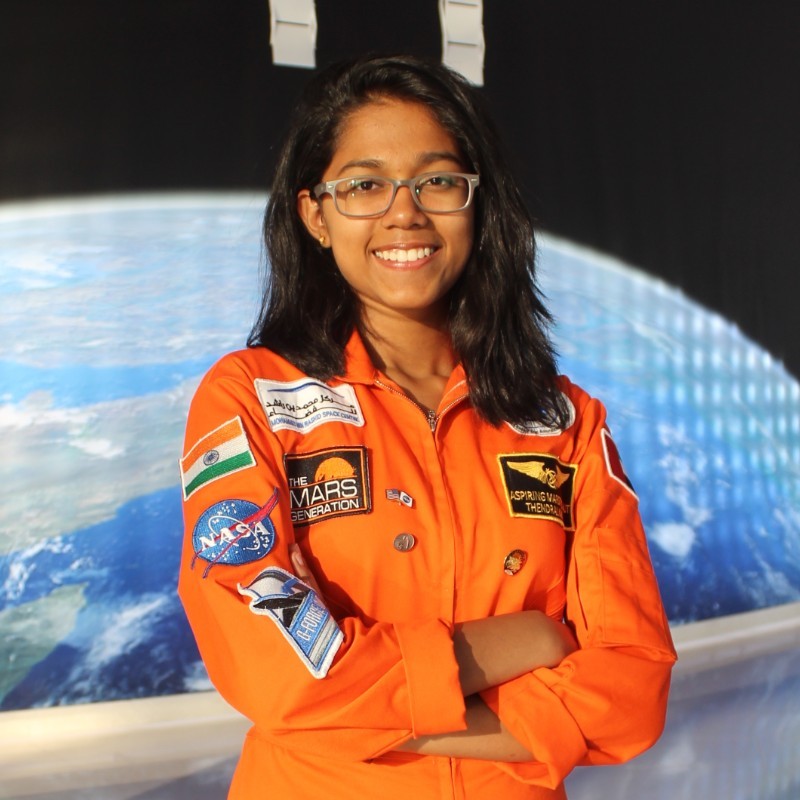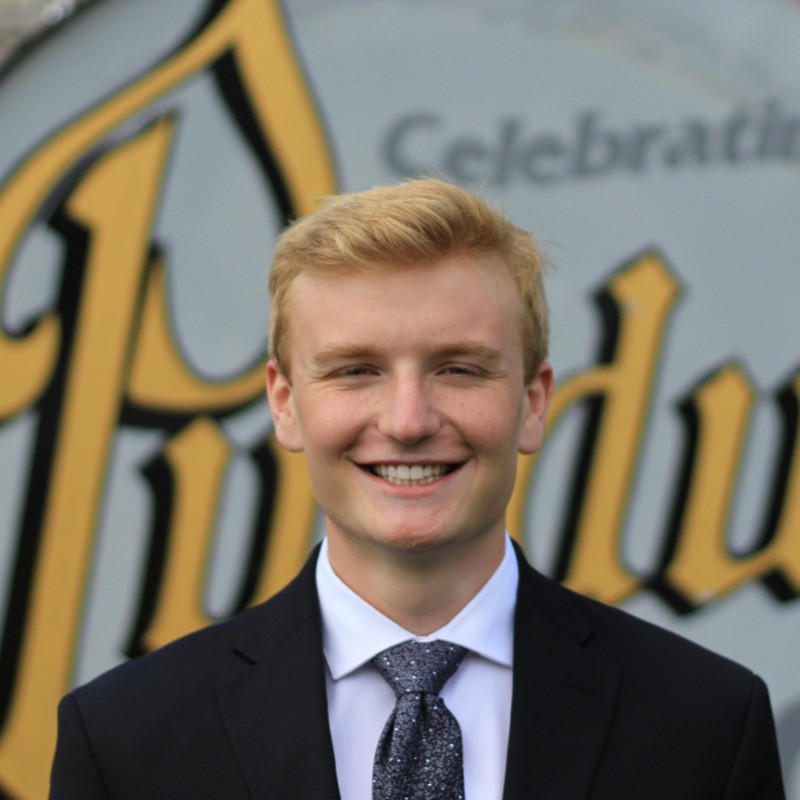OPP Announces 2024 Co-op and Intern of the Year
The Office of Professional Practice is thrilled to announce the winners of our inaugural Co-op and Intern of the Year Awards. These honors serve to recognize students who made a significant impact in the workplace and demonstrated how their work-integrated learning experience meaningfully contributed to their academic and professional growth. Congratulations to this year's winners!
Thendral Kamal
2024 Co-op Student of the Year
Delta Air Lines | School of Aeronautics & Astronautics
Thendral Kamal’s journey to being named Purdue’s 2024 Undergraduate Co-op Student of the Year began not with a polished pitch, but a split-second act of compassion. At the 2022 Purdue Industrial Roundtable, Kamal paused her introduction to Delta Air Lines recruiters when she noticed one struggling with heat exhaustion. A former Purdue Aquatics Lifeguard, she guided him to safety, uncertain if she'd just ended her shot at an offer. Instead, it became the very reason she was remembered. “You had my back,” the recruiter later told her. “That’s what we value here.”

That moment led to a three-semester co-op at Delta TechOps in Atlanta, where Kamal’s impact spanned critical engineering solutions, organizational leadership and high-level collaboration. In her first rotation, she joined the Outside Repair team, where her investigations into recurring failures of key components like the B737 Stabilizer Trim Motor and the B757 Air Cycle Machine produced recommendations that could save Delta over $550,000, she said. Kamal's technical knowledge earned a rare invitation as the only co-op attending MRO Americas 2023, where she represented Delta in discussions with industry leaders, including GE Aviation and Safran.
Recognizing her capability, Delta moved Kamal into its Composite Aerostructures team, where she quickly adapted to the technical complexity of composite and sheet metal repairs.
“From the day she set foot in the door, though, she never looked back,” wrote her manager, Jeff Naro. “She embraced every challenge thrown at her, asked hard questions, and immersed herself in the details.”
Kamal’s standout project was a repair on an A330 Aft Flap Track Fairing damaged by a bird strike, where she applied classical laminar plate theory, an advanced methodology that utilizes advanced matrix math reserved for some of the most difficult composite repairs that Delta encounters.
Nathan Schulz, lead engineer at Delta and Kamal’s mentor, called her “among the most organized and detail-oriented co-op students we’ve ever had.”
Schultz said Kamal progressed to handling engineering tasks independently, often at the level of a full-time entry engineer.
“Her ability to consume information and ask meaningful questions to drive toward the desired goal was very impressive,” he said.
Kamal’s influence extended beyond the shop floor. As president of Delta’s Co-op Development Committee, she led more than 300 interns and co-ops and helped raise over $2,000 for corporate charities, an all-time high. She published weekly leadership reports and built lasting relationships across departments.
“This co-op was not just my first industry experience, it was the first time I truly felt like I belonged as an engineer,” Kamal said. “It taught me that showing up with compassion is just as valuable as showing up with technical skill.”
Jason Packard
2024 Intern of the Year
NASA | School of Chemical Engineering
Jason Packard spent his summer nights at NASA differently than most.
Being chased off NASA's campus by security due to a strict "no interns in the lab past 6 p.m." policy.
"(I had an) unwavering desire to experiment as much as possible. I loved my job,” said Packard, a chemical engineering senior at Purdue University.

Packard was named Purdue’s 2024 Intern of the Year for his role in a NASA project focused on building lunar outposts for long-term human space presence. He spent eight months working under Yi Lin, a research materials engineer at NASA whose team was researching new solid-state batteries designed to survive the conditions of space. The work was part of NASA’s broader goal to send humans back to the Moon and eventually to Mars by the end of the decade.
“My work mainly consisted of theory, followed by trial and error experimentation,” Packard said. "I would try a new material, see how the corresponding battery performed, then take it apart and use our electron microscope to investigate it at the nano level."
Packard's methodical experimentation led to two major breakthroughs.
First, he said he found the cathode material was extremely water sensitive and needed careful atmospheric control in the lab, "but this would not be a problem in space." Second, Packard said he synthesized a silver-carbon interlayer material that radically improved battery performance. The results formed the basis of his first scientific publication in the Journal Small. In the summer, Packard’s team learned that their batteries had been selected for in-space testing.
“I spent the last few weeks of my internship carefully building the batteries in our lab by hand to send off. On Jan. 14, my batteries were launched into space on a SpaceX Falcon rocket, with the launch being livestreamed," he said.
Lin, who supervised Packard during the internship, described Packard as detail-oriented.
“Jason’s attitude toward research can be characterized simply as ‘relentless’, which is a combination of diligence, creativity and thoroughness,” Yi wrote. “No stone was left unturned could be a good description for his curiosity toward science.”
Packard's second major project involved developing high-temperature, highly cyclable solid-state batteries using a new chemistry unfamiliar to the team. Despite low initial expectations, his relentlessness paid off. After an extensive literature search, he decided on three key changes to the cell fabrication process.
“I was completely skeptical about his approach in the beginning,” Yi wrote. “But to my surprise, he conducted numerous experiments to prove, point-by-point, the effectiveness of each added strategy that he chose.”
The internship helped shape Packard’s future path: The scientific environment Yi cultivated inspired Packard to pursue a PhD in material science.
With Yi’s support Packard recently submitted a second paper to the Journal of Applied Materials and Interfaces and is preparing a third. With Yi’s mentorship, Packard was additionally connected with Liangbing Hu at Yale, who will serve as Packard’s PhD advisor beginning in fall 2025.
Packard's contributions weren’t limited to research. Yi noted Packard’s ability to balance academic and extracurricular excellence.
“I learned that he was elected as the president for the student body of Purdue University, an extremely competitive position that would take no less talent, dedication and effort to earn.”
Building on that momentum, Packard plans to return to NASA for another internship this summer and already knows how he’ll spend part of the $1,000 award: toward graduate studies “and take Yi to lunch at our favorite pho restaurant.”
Story by: Margaret Mowrer
